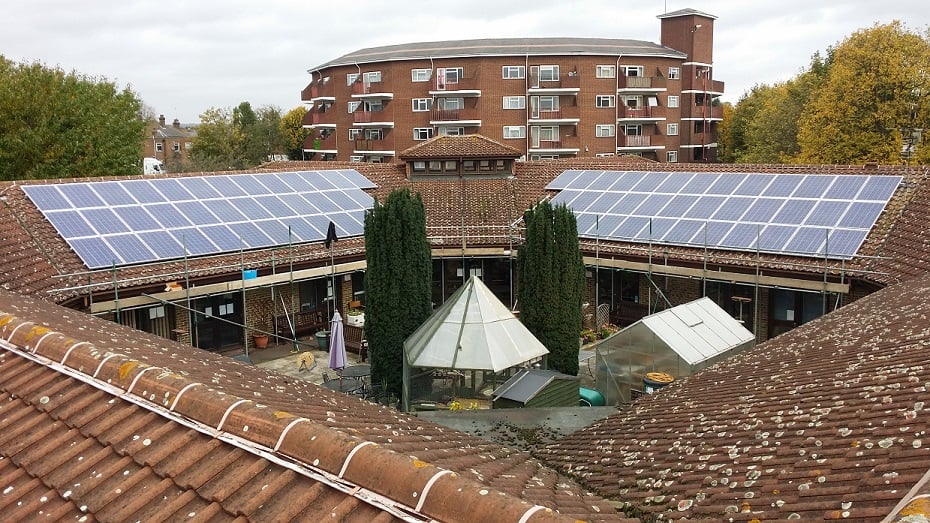
Local authority buildings with solar installations are likely to see significant increases in business rates when new rules are implemented next year. Image: Havering London Borough Council.
Devon County Council has called on ministers to raise the issue of proposed increases in business rates applied to solar installations, claiming the plans will have “a profound effect” on its own plans to install solar.
In a letter seen by Solar Power Portal addressed to Devon’s MPs, Councillor Roger Croad, cabinet member for community & environmental services, said he and his colleagues were “extremely concerned” that many local authorities and businesses will see “major tax or business rates increases on their rooftop solar installations”.
“I am highly concerned about the impact of this move,” he added.
According to the correspondence, the council had been planning a substantial increase in rooftop solar PV to help it save money and invest in local services. However the proposed increases in business rates of between six to eight times the current levels will significantly affect the viability of these plans, as well as that of existing installations.
Echoing warnings from the Solar Trade Association (STA) made earlier this year, Croad added that the increases will push some installations into negative return on investment and in effect “will all but eliminate the incentive for organisations including Devon County Council to install solar”.
“On principle, tax should not prevent businesses from doing business, particularly where they are doing the right thing by using clean energy and helping us meet our renewable energy targets,” he added.
The business rates issue has rumbled on since July when the STA revealed the Valuation Office Agency wider review of the business rates system was set to retroactively hike up the tax associated with existing installations, as well as those planned for the future.
The plans have since become a thorny political issue for the government, which has faced cross-party pressure to address the plans.
Some progress has been made, with the Treasury suggesting it would offer transitional relief measures for companies affected by upcoming changes. In addition, the STA was able to win a partial concession from the government, which agreed to spare installations used by companies to export power to the grid.
However, concerns remain over the cost to those organisations using their installations to power their own operations, with local authorities like Devon County Council often using solar energy to lower its energy consumption from the grid and, subsequently, its bills.
